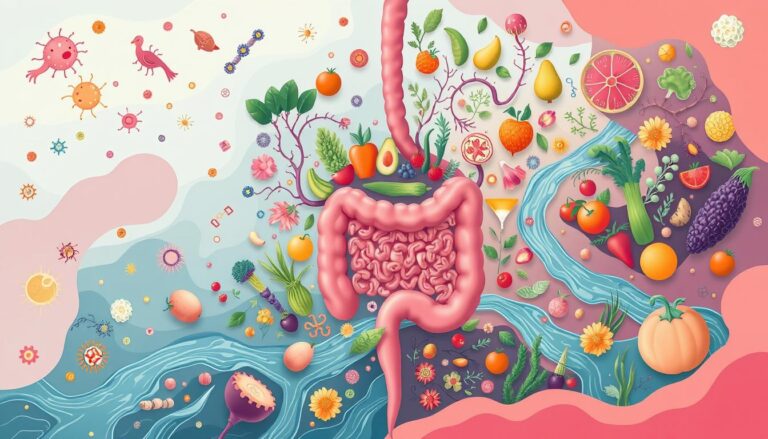Toxins Unveiled: Risks in Protein Powders
Discover the risks in protein powders by uncovering the presence of toxins. Be aware of potential health hazards associated with these products, such as contamination with heavy metals, BPA, and pesticides. Opt for protein sources that are chemical-free to minimize your exposure to harmful substances. Understanding the sources of toxins in protein powders is essential for maintaining your well-being. By investigating further, you can make more informed decisions about your protein intake and overall health.
Key Takeaways
- Toxins like heavy metals and BPA can harm health.
- Protein powders may contain contaminants like heavy metals.
- Proper detoxification methods can mitigate toxin exposure risks.
- Understanding toxin sources in protein powders is crucial.
- Consumer awareness of toxin levels in protein powders is vital.
Understanding Protein Powders
Protein powder, a powdered form of protein derived from plants, eggs, or milk, serves as a convenient source of supplemental protein for various dietary needs. The benefits of protein powders include aiding in muscle recovery, supporting muscle growth, and providing a quick protein source post-workout.
However, controversies surround protein powder consumption trends, with concerns about additives like artificial sweeteners, thickeners, and potential heavy metal contamination. It's essential to be aware of alternatives to protein powders such as obtaining protein from whole foods like lean meats, tofu, beans, and dairy products.
Monitoring your protein intake and considering the quality and source of your protein powder can help you make informed decisions about incorporating them into your diet.
Protein Powder Composition
With varying protein content per scoop, protein powders derive their composition from sources such as plants, eggs, or milk. These powders offer convenient protein intake, aiding in muscle repair and growth. When choosing a protein powder, consider the benefits and alternatives available.
| Protein Powder Benefits | Protein Powder Alternatives | Protein Sources |
|---|---|---|
| Convenient protein intake | Whole foods | Plants |
| Muscle repair and growth | Nuts, dairy, lean meat | Eggs |
| Varied flavors and forms | Legumes, fish | Milk |
Understanding the composition of protein powders allows you to make informed choices based on your dietary needs and preferences. Ensure you select a protein source that aligns with your health goals and fits into your overall nutritional plan.
Risks Associated With Protein Powders
Consider the potential health hazards associated with consuming protein powders, particularly the risks stemming from toxins and inadequate regulation. Protein powders may harbor health implications due to contaminants like heavy metals, BPA, and pesticides, raising concerns about their safety.
Exploring alternatives to these supplements, such as whole foods like nuts, dairy, legumes, fish, and lean meat, can mitigate these risks. Opting for chemical-free protein sources under medical supervision in specific cases is advisable.
The presence of toxins in some protein powders, as revealed by the Clean Label Project, underscores the importance of informed choices. Prioritizing whole food sources not only guarantees adequate protein intake but also minimizes exposure to potential toxins, safeguarding your health in the long run.
Lack of FDA Regulation
Amidst the landscape of dietary supplements, the absence of FDA oversight concerning protein powders raises concerns regarding their safety and accurate labeling. When it comes to protein powders, the lack of regulatory compliance by the FDA can lead to various risks and uncertainties for consumers. Here are four key points to ponder over:
- FDA Oversight: Currently, the FDA doesn't regulate protein powders like other food products, leaving a gap in ensuring their safety and quality.
- Uncertain Labeling Accuracy: Without FDA regulation, there's a risk of inaccurate labeling on protein powders, potentially misleading consumers about the product's contents.
- Quality Control: The absence of strict regulatory measures may result in inconsistencies in manufacturing processes, impacting the overall quality of protein powders.
- Consumer Protection: The lack of FDA oversight raises concerns about the protection of consumers from potential health hazards linked to unregulated protein powders.
Toxins in Protein Powders
The lack of FDA regulation for protein powders has exposed concerning levels of toxins, including heavy metals and BPA, according to recent findings by the Clean Label Project. Toxins in protein powders pose potential health risks and highlight the importance of consumer awareness. Detoxification methods may be necessary to reduce toxin exposure from contaminated protein powders.
Understanding the sources of these toxins, such as manufacturing processes or soil contaminants, is essential for implementing effective detoxification strategies. Consumer awareness plays a significant role in mitigating these risks by choosing reputable brands and staying informed about product safety.
Incorporating detoxification methods and promoting consumer awareness are essential steps to address the presence of toxins in protein powders and safeguard public health.
Clean Label Project Findings
The Clean Label Project's recent findings on protein powders revealed significant levels of toxins, including heavy metals and BPA, raising concerns about product safety and consumer health. When reflecting on these findings, it's vital to comprehend the impact on health and the significance of thorough product testing. Here are four key points to ponder:
- The presence of heavy metals and BPA in protein powders poses potential health risks.
- Higher toxin levels than permitted indicate a need for stricter quality control measures.
- Toxins may stem from various sources, such as manufacturing processes or contaminated raw materials.
- Consumer awareness of product testing results is crucial for making informed decisions about protein powder consumption.
Impact of Toxins on Health
When evaluating the impact of toxins found in protein powders on health, it's vital to consider the potential risks associated with consuming elevated levels of heavy metals and BPA. Toxins like heavy metals and BPA can have adverse health effects, including neurotoxicity, reproductive issues, and an increased risk of cancer.
Heavy metals such as lead, arsenic, and cadmium, even in small amounts, can accumulate in the body over time, leading to chronic health conditions. Bisphenol A (BPA) is a known endocrine disruptor that can interfere with hormonal balance, potentially affecting reproductive health and increasing the risk of certain cancers.
Monitoring toxin levels in protein powders is essential to mitigate health concerns associated with prolonged exposure to these harmful substances.
Daily Protein Requirements
Understanding your daily protein requirements is crucial for supporting muscle strength and overall health. To guarantee you meet your protein needs according to dietary guidelines, consider the following:
- Recommended Dietary Allowance: 46 grams for women and 56 grams for men.
- Sources of Protein: Include eggs, Greek yogurt, nuts, milk, and chicken.
- Meeting Protein Needs: Emphasize whole foods over supplements for a balanced intake.
- Importance of Protein: Essential for cell repair, growth, and overall bodily functions.
Whole Food Protein Sources
For vital nutrition, prioritize incorporating whole foods rich in protein into your daily diet.
Whole food benefits include providing essential nutrients alongside protein, promoting overall health.
Opting for protein alternatives like nuts, dairy, legumes, fish, and lean meat guarantees a diverse nutrient intake.
Unlike protein powders, whole foods offer a natural source of protein without the potential risks associated with supplements.
Consuming protein from whole foods may also assist in weight management due to their typically lower calorie and sugar content compared to some protein powders.
Whole foods not only supply protein for muscle strength but also deliver a range of vitamins, minerals, and antioxidants essential for cell repair and growth.
Embrace whole food protein sources for a well-rounded and nourishing diet.
Recommendations for Protein Intake
To maximize your protein intake for excellent health, it's important to align your daily protein consumption with recommended dietary allowances. When considering increasing protein in your diet, maintaining dietary balance is vital. Here are four key recommendations to optimize your protein intake:
- Aim to meet the Recommended Dietary Allowance (RDA) of 46 grams for women and 56 grams for men.
- Incorporate protein sources like eggs, Greek yogurt, nuts, milk, and chicken into your meals.
- Focus on obtaining protein from whole foods to support muscle strength and overall health.
- Guarantee a balanced protein intake to aid in cell repair, growth, and various bodily functions.
Conclusion
As you sift through the murky waters of protein powders, remember to tread carefully and stay vigilant against lurking dangers.
Just as a skilled scientist meticulously examines specimens under a microscope, scrutinize the contents of your supplements with a discerning eye.
Your health is a delicate ecosystem that requires protection from harmful toxins.
Choose wisely, stay informed, and nourish your body with the purest sources of protein to guarantee a strong foundation for your well-being.






